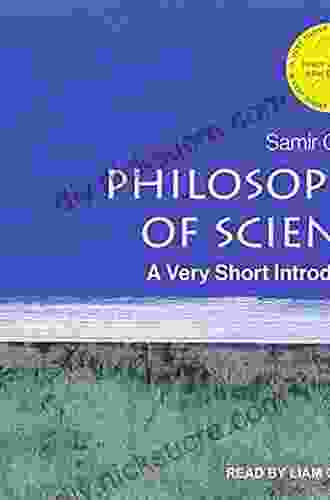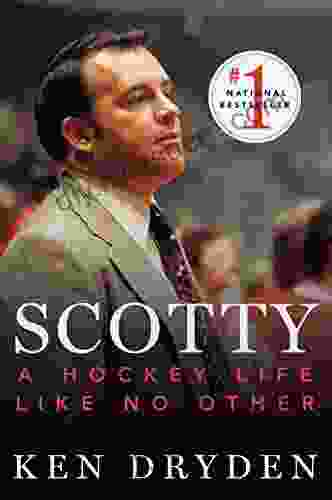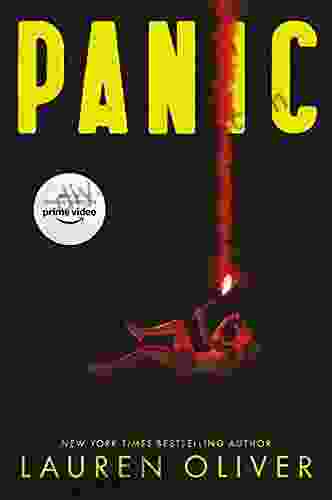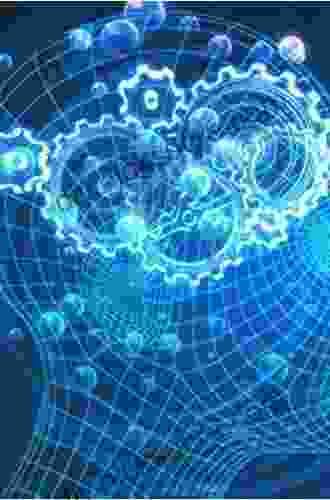An Introduction to the Philosophy of Science: Second Edition - A Comprehensive Review

4.6 out of 5
| Language | : | English |
| File size | : | 1214 KB |
| Text-to-Speech | : | Enabled |
| Screen Reader | : | Supported |
| Enhanced typesetting | : | Enabled |
| Word Wise | : | Enabled |
| Print length | : | 411 pages |
| Lending | : | Enabled |
Author: Samir Okasha
Publisher: Oxford University Press
Year: 2020
Overview
'An to the Philosophy of Science: Second Edition' by Samir Okasha is a comprehensive and accessible textbook that provides an in-depth overview of the field. The book covers a wide range of topics, from the history of philosophy of science to the latest developments in the field. Okasha writes in a clear and concise style, making the book easy to follow for students and general readers alike.
Key Concepts
One of the strengths of Okasha's book is its clear and concise explanations of key concepts in the philosophy of science. These concepts include:
- Science and pseudoscience: Okasha discusses the different ways in which science and pseudoscience can be distinguished. He argues that science is characterized by its commitment to empirical evidence and rational argument, while pseudoscience is not.
- Scientific method: Okasha explains the different steps of the scientific method. He argues that the scientific method is not a foolproof way to guarantee truth, but it is the best way we have to test and validate our theories.
- Theories and laws: Okasha discusses the difference between scientific theories and laws. He argues that theories are more general than laws, and that they can be used to explain a wider range of phenomena.
- Induction and deduction: Okasha discusses the different types of logical reasoning used in science. He argues that induction is the process of reasoning from specific observations to general s, while deduction is the process of reasoning from general principles to specific s.
Arguments
In addition to providing clear explanations of key concepts, Okasha also presents a number of arguments in support of his views. These arguments include:
- The argument from the success of science: Okasha argues that the success of science in explaining and predicting the world around us is evidence in favor of the reliability of the scientific method.
- The argument from the problem of induction: Okasha argues that the problem of induction - the fact that we can never be certain that our inductive inferences are true - does not undermine the reliability of science. He argues that the scientific method is the best way we have to test and validate our theories, even if we can never be certain that they are true.
- The argument from the unity of science: Okasha argues that the fact that all of the sciences share a common commitment to empirical evidence and rational argument is evidence in favor of the unity of science. He argues that there is no fundamental difference between the natural sciences and the social sciences.
Implications
The philosophy of science has a number of implications for our understanding of the world around us. These implications include:
- The limits of science: Okasha argues that science is not capable of answering all of our questions about the world. He argues that there are some questions that are beyond the reach of science, such as questions about the meaning of life and the existence of God.
- The value of science: Okasha argues that science is a valuable enterprise, even if it cannot answer all of our questions. He argues that science can help us to understand the world around us and to make better decisions.
- The responsibility of scientists: Okasha argues that scientists have a responsibility to use their knowledge for the benefit of humanity. He argues that scientists should not use their knowledge for harmful purposes, such as developing weapons of mass destruction.
'An to the Philosophy of Science: Second Edition' by Samir Okasha is a comprehensive and accessible textbook that provides an in-depth overview of the field. The book covers a wide range of topics, from the history of philosophy of science to the latest developments in the field. Okasha writes in a clear and concise style, making the book easy to follow for students and general readers alike. I highly recommend this book to anyone who is interested in learning more about the philosophy of science.
4.6 out of 5
| Language | : | English |
| File size | : | 1214 KB |
| Text-to-Speech | : | Enabled |
| Screen Reader | : | Supported |
| Enhanced typesetting | : | Enabled |
| Word Wise | : | Enabled |
| Print length | : | 411 pages |
| Lending | : | Enabled |
Do you want to contribute by writing guest posts on this blog?
Please contact us and send us a resume of previous articles that you have written.
 Fiction
Fiction Non Fiction
Non Fiction Romance
Romance Mystery
Mystery Thriller
Thriller SciFi
SciFi Fantasy
Fantasy Horror
Horror Biography
Biography Selfhelp
Selfhelp Business
Business History
History Classics
Classics Poetry
Poetry Childrens
Childrens Young Adult
Young Adult Educational
Educational Cooking
Cooking Travel
Travel Lifestyle
Lifestyle Spirituality
Spirituality Health
Health Fitness
Fitness Technology
Technology Science
Science Arts
Arts Crafts
Crafts DIY
DIY Gardening
Gardening Petcare
Petcare Kenneth Cloke
Kenneth Cloke Brian Clegg
Brian Clegg Jose M Forero Bautista
Jose M Forero Bautista Iasha King
Iasha King Harrison Fluss
Harrison Fluss W Timothy Gallwey
W Timothy Gallwey A Roger Ekirch
A Roger Ekirch Thomas Mcguane
Thomas Mcguane Giordano Scalzo
Giordano Scalzo Corina Morariu
Corina Morariu Hazel Holmes
Hazel Holmes Catherine Rodgers
Catherine Rodgers Jane Austen
Jane Austen Dirk F Moore
Dirk F Moore Josh Skeen
Josh Skeen Chelsea Crockett
Chelsea Crockett Todd Wanerman
Todd Wanerman Lisa Pease
Lisa Pease Helen Fitzgerald
Helen Fitzgerald Lou Zambello
Lou Zambello Heather Gudenkauf
Heather Gudenkauf Stephen R Lawhead
Stephen R Lawhead Jeff Kane
Jeff Kane Diane Stresing
Diane Stresing Jec Aristotle Ballou
Jec Aristotle Ballou A G Howard
A G Howard Mark Ryan
Mark Ryan Harry Yoon
Harry Yoon Michael D Coogan
Michael D Coogan Carrie Harper
Carrie Harper Judi Garman
Judi Garman Linda Tuhiwai Smith
Linda Tuhiwai Smith Jack Grimshaw
Jack Grimshaw Karla Helbert
Karla Helbert Jamie Vardy
Jamie Vardy Garret Romaine
Garret Romaine Roger Zelazny
Roger Zelazny Sherrilyn Kenyon
Sherrilyn Kenyon Mitch Landrieu
Mitch Landrieu Christopher Small
Christopher Small Brad K Chambers
Brad K Chambers Peter Rees
Peter Rees Peter Goldenthal
Peter Goldenthal Kelly Starrett
Kelly Starrett Marcus Butler
Marcus Butler Marks Prep
Marks Prep Diane Burke Fessler
Diane Burke Fessler Gary Gruber
Gary Gruber Todd Rose
Todd Rose Anne Sigismund Huff
Anne Sigismund Huff Tripp Bowden
Tripp Bowden Pete Ripmaster
Pete Ripmaster Joshua Akin
Joshua Akin Sarah Sutton
Sarah Sutton Joe Pepitone
Joe Pepitone Paul Mccarthy
Paul Mccarthy E S Wynn
E S Wynn Leandro Taub
Leandro Taub Susanne Foitzik
Susanne Foitzik Don Fink
Don Fink Thomas Hager
Thomas Hager Taha Sochi
Taha Sochi John L Messina
John L Messina Watt Key
Watt Key Shauna Lynn Panczyszyn
Shauna Lynn Panczyszyn Eileen Tracy
Eileen Tracy Ilya Ru
Ilya Ru Alexander Greenmaj
Alexander Greenmaj Lindsey Lapointe
Lindsey Lapointe Richard Heath
Richard Heath Seth M Holmes
Seth M Holmes Susan Cooper
Susan Cooper A J Angulo
A J Angulo Scientia Media Group
Scientia Media Group Sharie King
Sharie King Bryan Berg
Bryan Berg Larit Levy
Larit Levy Tsao Lin E Moy L Ac Msom
Tsao Lin E Moy L Ac Msom John Long
John Long Soap2day Publication
Soap2day Publication Joel David Hamkins
Joel David Hamkins Thomas C Tabor
Thomas C Tabor Dave Lowry
Dave Lowry Micha Gorelick
Micha Gorelick Nancy Mckenzie
Nancy Mckenzie Andrea Falk
Andrea Falk Ken Alder
Ken Alder Dr Alan Whitcomb
Dr Alan Whitcomb Boston T Party
Boston T Party Certsquad Professional Trainers
Certsquad Professional Trainers Erin Watt
Erin Watt Rens Bod
Rens Bod Barbara J Bain
Barbara J Bain Cassandra Clare
Cassandra Clare Din Daniels
Din Daniels Raymond J Carroll
Raymond J Carroll Anna Goldsworthy
Anna Goldsworthy William F Mann
William F Mann Calvin L Chou
Calvin L Chou N J Enfield
N J Enfield Tim Flanagan
Tim Flanagan Rafe Esquith
Rafe Esquith Matilda Ramsay
Matilda Ramsay Megan Vickers
Megan Vickers Eric Blehm
Eric Blehm John L Parker Jr
John L Parker Jr Kenay Keira
Kenay Keira Francis Fukuyama
Francis Fukuyama Grady Hendrix
Grady Hendrix Shenyang Guo
Shenyang Guo Katerina Griffith
Katerina Griffith Bob Frye
Bob Frye Bear Heart
Bear Heart Jonathan Eig
Jonathan Eig William Minto
William Minto Anghel Leonard
Anghel Leonard Steve Hindman
Steve Hindman Elisabeth Fassas
Elisabeth Fassas David Spiegelhalter
David Spiegelhalter Jennifer Longmore
Jennifer Longmore Blair Holden
Blair Holden Jennie Finch
Jennie Finch Kevin Adams
Kevin Adams Shanterra Mcbride
Shanterra Mcbride John Almberg
John Almberg Lauren Oliver
Lauren Oliver Karl Knopf
Karl Knopf Abigail Burd Lcsw Pmh C
Abigail Burd Lcsw Pmh C Rick Telander
Rick Telander Tammara Webber
Tammara Webber Gordon Macquarrie
Gordon Macquarrie Jonalu Johnstone
Jonalu Johnstone David Magee
David Magee Jamal Moustafaev
Jamal Moustafaev Alison Cotter
Alison Cotter Len Fisher
Len Fisher Filippo Coarelli
Filippo Coarelli James Baldwin
James Baldwin Randy Friedman
Randy Friedman Bree Moore
Bree Moore William Bauer
William Bauer Aaron Kleinmeyer
Aaron Kleinmeyer Anthony J Onwuegbuzie
Anthony J Onwuegbuzie Barry Werth
Barry Werth Daniel S Pierce
Daniel S Pierce Mark Obmascik
Mark Obmascik Olivia Smith
Olivia Smith A M Wilson
A M Wilson Jm Mason
Jm Mason Robert P Harris
Robert P Harris A K Davidson
A K Davidson Peter Zheutlin
Peter Zheutlin Monte Burke
Monte Burke William Scott Wilson
William Scott Wilson Peter Godfrey Smith
Peter Godfrey Smith Steve Angers
Steve Angers Sergey Kosarevsky
Sergey Kosarevsky A L Knorr
A L Knorr Bob Plager
Bob Plager Shelly Mazzanoble
Shelly Mazzanoble Alyssa Padgett
Alyssa Padgett Matt Brown
Matt Brown Ryan Gray
Ryan Gray Day Leitao
Day Leitao Val Emmich
Val Emmich Sarah Jo Brown
Sarah Jo Brown Kenn Bivins
Kenn Bivins The R A
The R A Bruce Lansky
Bruce Lansky Byron Pitts
Byron Pitts Jonathan Mckee
Jonathan Mckee George Francis Dow
George Francis Dow Lisa Murphy
Lisa Murphy Peter Shelton
Peter Shelton Anji Andrews
Anji Andrews Mj Porter
Mj Porter A H Almaas
A H Almaas Ken Dryden
Ken Dryden Yasu
Yasu Nick Jackson
Nick Jackson Dr Kevin Leman
Dr Kevin Leman Jim Vernes
Jim Vernes Michael Labossiere
Michael Labossiere Tanya Selvaratnam
Tanya Selvaratnam Dale Dougherty
Dale Dougherty John Mordechai Gottman
John Mordechai Gottman Dale P Clemens
Dale P Clemens Amos Yong
Amos Yong Susan Striker
Susan Striker Laura Pohl
Laura Pohl Steven Raichlen
Steven Raichlen Michael Lardon
Michael Lardon Helen Buckley
Helen Buckley Virginia Willis
Virginia Willis Cyndi Kinney
Cyndi Kinney Tony Wright
Tony Wright Mike Tidwell
Mike Tidwell Toni Natalie
Toni Natalie Walter Dean Myers
Walter Dean Myers Cathy A Malchiodi
Cathy A Malchiodi K A Riley
K A Riley Mrjamvad
Mrjamvad Emily Evans
Emily Evans Dan Limbaugh
Dan Limbaugh Rosie Garthwaite
Rosie Garthwaite Christine Wheeler
Christine Wheeler Sandra Swenson
Sandra Swenson Chris I Naylor
Chris I Naylor R A Mejia
R A Mejia Jan Morris
Jan Morris Dean R Johnson
Dean R Johnson Businessnews Publishing
Businessnews Publishing David Deutsch
David Deutsch Kenneth Cline
Kenneth Cline William Monk
William Monk Sandra Niche
Sandra Niche Russell Sher
Russell Sher Jennifer Trainer Thompson
Jennifer Trainer Thompson Andreas Quast
Andreas Quast Jon Gillespie Brown
Jon Gillespie Brown David A Wells
David A Wells Thomas R Martin
Thomas R Martin Rina Kent
Rina Kent Oba Ilari Aladokun
Oba Ilari Aladokun Dame Darcy
Dame Darcy Philip Yarrow
Philip Yarrow Pardha S Pyla
Pardha S Pyla Todd Downs
Todd Downs Andrew Henderson
Andrew Henderson Rachael Allen
Rachael Allen Kerri Hummingbird Sami
Kerri Hummingbird Sami Ray Ordorica
Ray Ordorica Russell Davis
Russell Davis Charles Edward Chapel
Charles Edward Chapel Zen Lylah
Zen Lylah Gemma Milne
Gemma Milne Katrina Abbott
Katrina Abbott Rysa Walker
Rysa Walker Todd Gitlin
Todd Gitlin Catherine Stonehouse
Catherine Stonehouse Lilith Mclelland
Lilith Mclelland Philip Golding
Philip Golding Loretta Sponsler
Loretta Sponsler Scott A Ostrow
Scott A Ostrow Timothy J Gawne
Timothy J Gawne William Ramsey
William Ramsey Ken Castor
Ken Castor Jennifer Senior
Jennifer Senior Chris Diamond
Chris Diamond Patrick Meechan
Patrick Meechan Raymond M Smullyan
Raymond M Smullyan Heather Anderson
Heather Anderson Susan Aud Sonders
Susan Aud Sonders Max Tegmark
Max Tegmark Anne Deans
Anne Deans Ed Webster
Ed Webster Matthew J Friedman
Matthew J Friedman Glenn Patron
Glenn Patron Manoush Zomorodi
Manoush Zomorodi Alf Wilkinson
Alf Wilkinson Charles Szypszak
Charles Szypszak Ari Tuckman
Ari Tuckman Crystal Cestari
Crystal Cestari A F Stewart
A F Stewart Joe Navarro
Joe Navarro Francis Pryor
Francis Pryor Lucy Christopher
Lucy Christopher Remy Agee
Remy Agee Cailin O Connor
Cailin O Connor Alex Karp
Alex Karp A J Messenger
A J Messenger John Brenkus
John Brenkus Sam Warburton
Sam Warburton Sonya Chappell
Sonya Chappell Adrian Dater
Adrian Dater Jean Philippe Dionne
Jean Philippe Dionne David H Barlow
David H Barlow Sky Marsen
Sky Marsen Eric Sevareid
Eric Sevareid Louis Jacques Dorais
Louis Jacques Dorais Sean Skahan
Sean Skahan Marlynn Jayme Schotland
Marlynn Jayme Schotland Lillian Tibbles Phd
Lillian Tibbles Phd Frost Kay
Frost Kay Akash Kapur
Akash Kapur John D Currid
John D Currid Fernanda Pirie
Fernanda Pirie Leslie Stager
Leslie Stager Dr Stephanie Bloodworth Psyd
Dr Stephanie Bloodworth Psyd Sherine Hamdy
Sherine Hamdy Dr Howard Rankin
Dr Howard Rankin A L Graziadei
A L Graziadei Peter Nichols
Peter Nichols Dan Romanchik Kb6nu
Dan Romanchik Kb6nu Jennifer L Armentrout
Jennifer L Armentrout Cynthia Ulrich Tobias
Cynthia Ulrich Tobias Rekha Ramcharan
Rekha Ramcharan Eric Armstrong
Eric Armstrong John Halligan
John Halligan A J Carlisle
A J Carlisle David G Taylor
David G Taylor Val Mcdermid
Val Mcdermid Chuck Whelon
Chuck Whelon Upton Sinclair
Upton Sinclair Stan Tenen
Stan Tenen Joseph Mctaggart
Joseph Mctaggart A J Hamler
A J Hamler Bruce Collier
Bruce Collier Stan Skinner
Stan Skinner Mia Kankimaki
Mia Kankimaki Lyndall Clipstone
Lyndall Clipstone Vernon Trafford
Vernon Trafford Dawn Huebner
Dawn Huebner Polly Moore
Polly Moore Jennifer N Smith
Jennifer N Smith Meghan Leahy
Meghan Leahy Roy Richard Grinker
Roy Richard Grinker Tom Jordan
Tom Jordan Rebecca A Moyes
Rebecca A MoyesA G
 Matthieu Ricard
Matthieu Ricard Timothy C Urdan
Timothy C Urdan Noah Gift
Noah Gift Zen Faulkes
Zen Faulkes Helen Marot
Helen Marot Saxton Pope
Saxton Pope Lyla Lee
Lyla Lee Winston Starr
Winston Starr Cristian Salcescu
Cristian Salcescu Gabrielle Coleman
Gabrielle Coleman Michael Shingleton
Michael Shingleton Dane Huckelbridge
Dane Huckelbridge Jordan B Peterson
Jordan B Peterson Homeira Qaderi
Homeira Qaderi Dr Tricia Groff
Dr Tricia Groff Kathlyn Gay
Kathlyn Gay Ray Bradbury
Ray Bradbury Lou Tabory
Lou Tabory Ridge Magee
Ridge Magee Arlin Smith
Arlin Smith Armin A Brott
Armin A Brott Amanda Ostrander
Amanda Ostrander Bob Trueman
Bob Trueman Charles Butler
Charles Butler Okina Baba
Okina Baba A G Cairns Smith
A G Cairns Smith Linh Phung
Linh Phung Rebecca Pelky
Rebecca Pelky David J Vanbergen Jr
David J Vanbergen Jr Roxanne Martin
Roxanne Martin Lindsey Vonn
Lindsey Vonn David Remnick
David Remnick John Williams
John Williams King Solomon
King Solomon Rebecca Black
Rebecca Black Zander Brumbaugh
Zander Brumbaugh Tiara R Brown
Tiara R Brown Valerio Varesi
Valerio Varesi Mike Branon
Mike Branon Jim Allen
Jim Allen Hicham And Mohamed Ibnalkadi
Hicham And Mohamed Ibnalkadi Angela Himsel
Angela Himsel Eugene Don
Eugene Don Nicole Conway
Nicole Conway A J Stewart
A J Stewart Peter Maas
Peter Maas Flo Perry
Flo Perry Sadie Robertson Huff
Sadie Robertson Huff Michelle Maccarthy
Michelle Maccarthy Niall Ferguson
Niall Ferguson Eva Mauer
Eva Mauer Cath Smith
Cath Smith William C Oakes
William C Oakes A J Mackenzie
A J Mackenzie Caspar Craven
Caspar Craven Leigh Newman
Leigh Newman Georgia Varozza
Georgia Varozza Christiane Kutik
Christiane Kutik Michael Lanza
Michael Lanza Raymonde Carroll
Raymonde Carroll Jonathan S Rose
Jonathan S Rose Mandy Rivers
Mandy Rivers Freya Hoffmeister
Freya Hoffmeister Bill Jones
Bill Jones Dmv Test Bank
Dmv Test Bank Helen E Johnson
Helen E Johnson Paul Watzlawick
Paul Watzlawick Bruce Tremper
Bruce Tremper A R Vasishtha
A R Vasishtha A M Strickland
A M Strickland Vitaly Pedchenko
Vitaly Pedchenko Kathy Koch
Kathy Koch Lilin Yang
Lilin Yang Natalie Pompilio
Natalie Pompilio Lauren Muhlheim
Lauren Muhlheim Adam Savage
Adam Savage Marc S Sabatine
Marc S Sabatine Pintip Dunn
Pintip Dunn Michael Dell
Michael Dell A J Mackinnon
A J Mackinnon
Light bulbAdvertise smarter! Our strategic ad space ensures maximum exposure. Reserve your spot today!
 Bryson HayesFollow ·7.2k
Bryson HayesFollow ·7.2k Hugh BellFollow ·2.4k
Hugh BellFollow ·2.4k Jerome BlairFollow ·6.7k
Jerome BlairFollow ·6.7k Trevor BellFollow ·8.3k
Trevor BellFollow ·8.3k Forrest BlairFollow ·3.8k
Forrest BlairFollow ·3.8k Vladimir NabokovFollow ·18.6k
Vladimir NabokovFollow ·18.6k Harrison BlairFollow ·2k
Harrison BlairFollow ·2k Alvin BellFollow ·6.7k
Alvin BellFollow ·6.7k
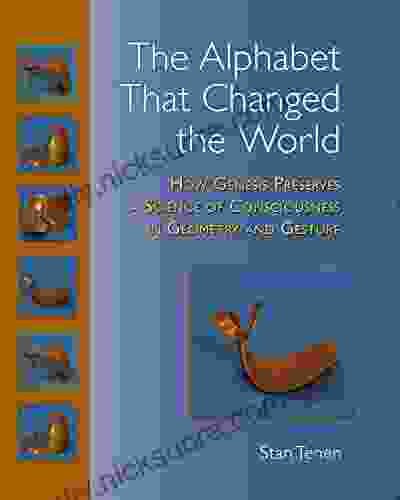
 Franklin Bell
Franklin BellHow Genesis Preserves Science Of Consciousness In...
The book of Genesis is...
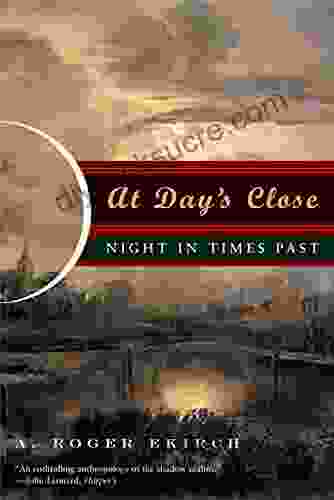
 Ted Simmons
Ted SimmonsAt Day's Close, Night in Times Past
As the sun dips...

 Kenneth Parker
Kenneth ParkerRose Under Fire: Code Name Verity - A Heartbreaking and...
In the annals of...

 Jerry Hayes
Jerry HayesNurturing Massage for Pregnancy: A Comprehensive Guide to...
Pregnancy is...

 Blake Bell
Blake BellFill in the Blank: Word Kind of Animal Farm for Kids and...
This interactive fill-in-the-blank...
4.6 out of 5
| Language | : | English |
| File size | : | 1214 KB |
| Text-to-Speech | : | Enabled |
| Screen Reader | : | Supported |
| Enhanced typesetting | : | Enabled |
| Word Wise | : | Enabled |
| Print length | : | 411 pages |
| Lending | : | Enabled |


